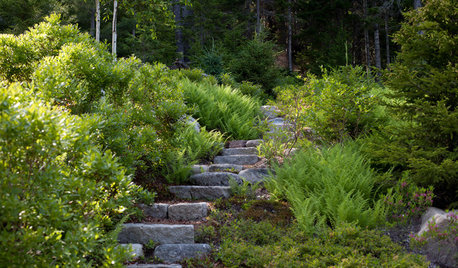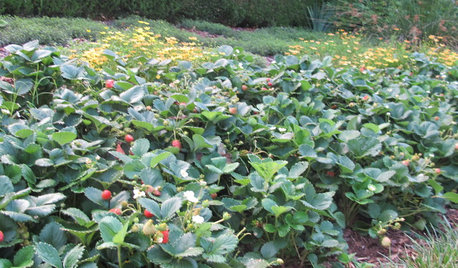Using ammonium nitrate or ammonium sulfate
barberberryfarm
12 years ago
Related Stories

GREEN BUILDINGEcofriendly Cool: Insulate With Wool, Cork, Old Denim and More
Learn about the pros and cons of healthier alternatives to fiberglass and foam, and when to consider an insulation switch
Full Story
GARDENING GUIDESGrow a Beautiful Garden in Alkaline Soil
Got alkaline soil? Learn how to manage it and the many beautiful plants that will thrive in this ‘sweet’ soil
Full Story
GARDENING GUIDESGreat Design Plant: Grow Blueberries for Their Fruit and More
Eastern gardeners should consider growing blueberry plants for their delicious fruits, bee-friendly spring blooms and brilliant fall foliage
Full Story
REGIONAL GARDEN GUIDESSoutheast Gardener's September Checklist
Fertilize strawberries, plant a tree or two and beckon hummingbirds to your Southern garden this month
Full Story





alabamanicole
rhizo_1 (North AL) zone 7
Related Professionals
Londonderry Landscape Architects & Landscape Designers · Taylorsville Landscape Architects & Landscape Designers · Maple Heights Landscape Architects & Landscape Designers · Tempe Landscape Contractors · Cicero Landscape Contractors · Eureka Landscape Contractors · Rockwall Landscape Contractors · San Benito Landscape Contractors · Stallings Landscape Contractors · Four Corners Landscape Contractors · Annapolis Siding & Exteriors · Hamden Siding & Exteriors · Manassas Siding & Exteriors · Panama City Siding & Exteriors · Woodland Hills Siding & ExteriorsbarberberryfarmOriginal Author
rhizo_1 (North AL) zone 7
barberberryfarmOriginal Author
rhizo_1 (North AL) zone 7
drippy
barberberryfarmOriginal Author
rhizo_1 (North AL) zone 7
barberberryfarmOriginal Author
rhizo_1 (North AL) zone 7
barberberryfarmOriginal Author
User
barberberryfarmOriginal Author